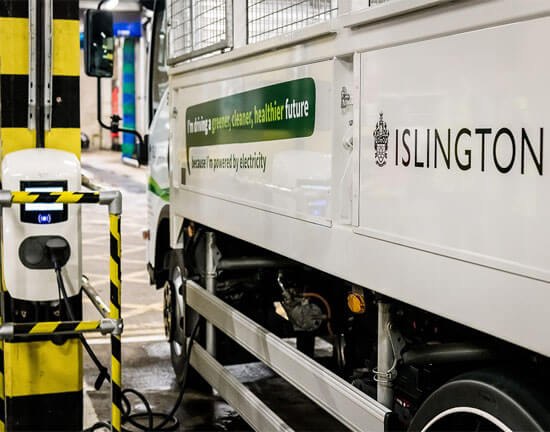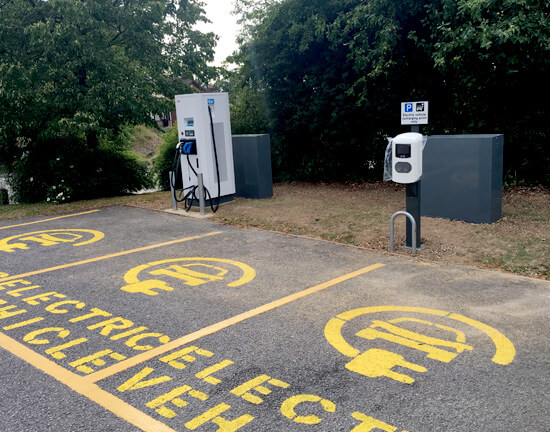Mahindra – Racing forward with Workplace Charging
Mahindra Racing – the ‘Greenest Team in Motorsport’ – is a founding team competing in the ABB FIA Formula E World Championship. Formula E is the world’s first, all-electric street racing series and the closest, most competitive, and fastest-growing category in motorsport – but it’s more than just a race on track! It’s also the leading platform to test new technologies, drive development to the production line, and ultimately lead to more electric cars on the road. It helps to alter perceptions and accelerate the switch to electric too, in a bid to counteract the climate crisis and address the effects of air pollution.
Teams with an impeccable pedigree
Mahindra Racing has an impeccable pedigree. The team was crowned 2021’s Climate Champions at the end of the last ABB FIA Formula E season and was the first Formula E team (and only the second motorsport outfit in the world) to receive the top Three-Star FIA Sustainability Accreditation. The team also became the first FIA World Championship entrant to be certified as Net Zero Carbon Footprint from inception, and we were delighted when the business approached our own impeccable team, to help with their workplace charging requirements at their new UK headquarters in Banbury.
Clarifying requirements, technology, and funding
Mahindra wanted to make EV charging available to all staff and visitors, as well as to encourage the uptake of electrical vehicles. The need was an initial 6 chargers to cover current and short to medium term demand, with the view to expanding in future, and one of the reasons they selected Joju was that they also wanted to explore potential for roof top solar for their Banbury site, to help further decrease the carbon footprint of their premises.
At Joju, we are highly experienced in helping our workplace EV charging customers navigate the variety of funding options available. In Mahindra’s case, as the site and business were eligible for the OZEV Workplace Charging Scheme, we were able to administer this on their behalf to secure a £350 per socket contribution to the cost of the install.
Also, due to being technology agnostic as a business, we were able to recommend the best solution for the site, as well as for our client’s brand goals. As ABB is the principal sponsor of the Formula E Championship, the link to the product on this commercial site was a natural one. Together we examined the ABB product range and agreed the best products for the application – namely the ABB Terra AC 22kW Wallbox chargers. The ABB back-office solution also provides the perfect functionality for Mahindra Racing to monitor their use.
The installation
We carried out the full turnkey installation including all groundworks, installation of the EV charge points on posts, the electrical installation, testing and commissioning, all to the required client timescales.
We pride ourselves on our dedicated project management, technical expertise and flexibility and for Mahindra, we needed to ensure we connected into the existing electrical infrastructure on site, choosing the correct supply chain partner and making sure this happened at a convenient ‘out of hours’ timeframe for the client.
The reaction
Dilbagh Gill, Team Principal and CEO at Mahinda Racing said,
“We believe that ‘doing good’ goes beyond philanthropy and CSR. It is more than just random acts of kindness. It is a purpose, an attitude, and a way of life. As a team, we are committed to finding credible, advanced and next generation mobility solutions while being kind to the planet. Sustainability is not a buzz word for us; it is ingrained into our ethos and a big part of the reason we are racing in Formula E.
The installation of EV charging points at our facility here in Banbury is yet another step in our journey to drive this change towards electrification and it has been a pleasure to work with Joju, whose reputation and attitude aligns so well with our own passion. We are grateful for their guidance every step of the way, and look forward to their continued support as we continue to grow”.
It’s always great to get this kind of feedback and we look forward to working with Mahindra Racing in the future, to keep their workplace charging goals on track!
Discover more
- Read more about Electric Vehicle Charging for Business
- Check out our EV Charging Case Studies
- Have a look at our EV Charging Facts and Figures






